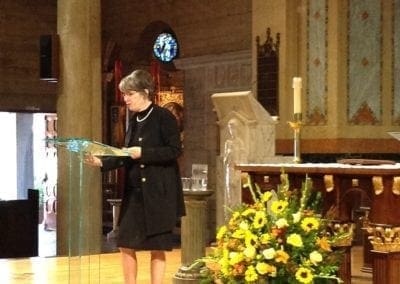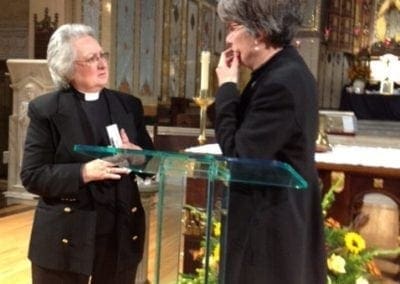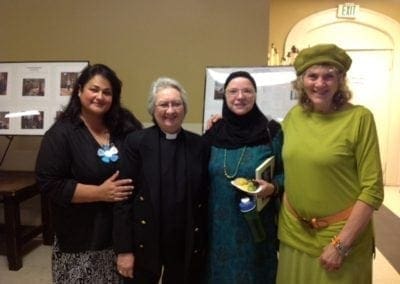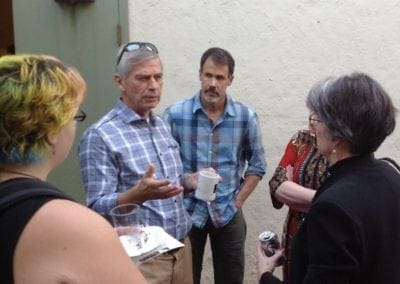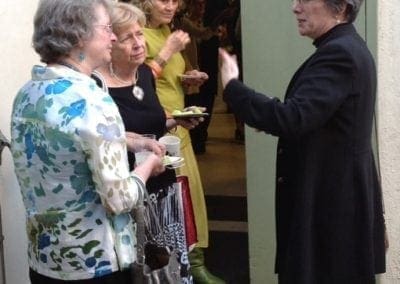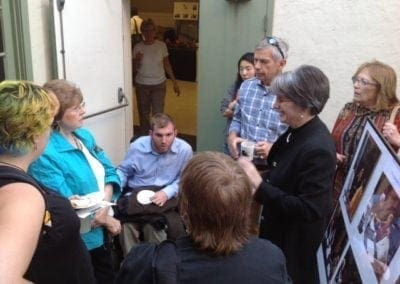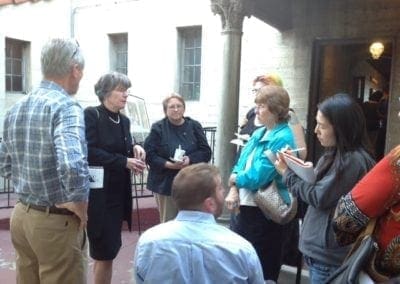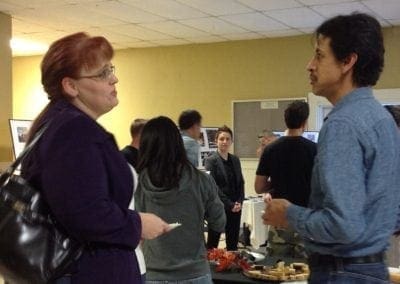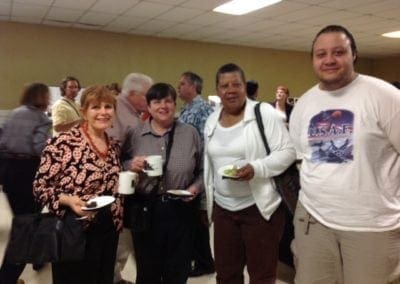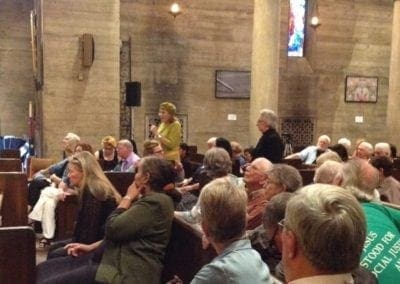Dr. Amy-Jill Levine on Gospel Politics
A Photo Journal by Dr. Lo Sprague
“A Startling Challenge in Using the Gospel in Politics ”
A great teacher takes something we have always known and helps us understand it in a whole new way. She turns the light on and we’re startled to see what’s been right in front of us all along.
Dr. Amy-Jill Levine thoroughly enthralled and challenged those who attended Gospel Politics just before the November 2012 elections. Early on, she set some useful guidelines:
“…how the Bible might be discussed is to think of the Bible less as a book of answers and more as a book that helps us raise the right questions. It forces us to think about issues that were important in the First Century – the same issues: government, health care, family values, the military, capital punishment, taxes. They were of concern then and they are of concern today…The Bible opens up those questions.”
She then cautioned: “Too often The Bible is being used as a weapon to do damage … So when we use the Bible, let’s use it carefully.”
What really opened up the Gospels was viewing them in light of the question: “What would Jesus’ first century listeners have heard and understood, in what Jesus told them, that would have led them to risk their lives and comfort to follow him?” We quickly realized these texts contain much more than we as twenty-first century people have heard.
Beginning with Jesus’ first words in the first Gospel written, Mark, she plunged in. “The time is fulfilled, the Kingdom of God has come near. Repent and believe in the Good News.”
What is the Good News?
Amy-Jill noted that Jesus’ listeners would not have heard later Christians’ interpretation of the Good News as equaling Jesus’ life, death and resurrection to save us from our sins. They had not known or expected him to soon die.
They would not have heard not how we are saved through life after death. Rather, they had his primary message, the Good News: “How do we love God with all of our heart and all of our soul and with all of our strength? And how do we love our neighbor as ourselves?”
And this Good News is what the Gospel Politics perspective is about. It’s not about which side is right or wrong. It’s about truly seeking to love God and love our neighbors.
With a delightful, sometimes provocative, and always faithful twist, “AJ” then led us into deeper conversation about Jesus and his views:
- How would Jesus vote?
- Could he get elected in the United States today?
- Questions of taxation and fiscal responsibility
- What Jesus had to say about the government and what it had to say about capital punishment
- Health care
- Jesus’ view of veterans and the military
- Jesus’ own view of the family
Could Jesus Get Elected Today?
Here are a few highlights (you may want to watch the video so you don’t miss anything):
It seems to me that once we have Jesus agreeing to everything that we think – we’ve probably got it wrong!
The Gospel should be a CHALLENGE.
As a first-century Galilean, Jesus didn’t get to vote and the “elected” whom he cared about were his fellow Jews who were “elected” to love God and to love neighbor.
Could Jesus get elected in the United States of America today? Not a chance! (While the audience howled at the 20 reasons why, they also saw Jesus’ life in a new way.)
Looking at Jesus’ comments on money and taxes led to a completely new and profound grasp of the call to fully grapple with caring for our neighbors in poverty. That’s what loving our neighbor means.
Again and again we looked at political issues, issues of how we treat one another, with fresh eyes. Amid laughter came flashes of insight and confrontation with the challenging, stark truth what Jesus asked of those who would follow him.
Amy-Jane’s stories of working with death-row prisoners put a human face to the capital punishment discussion – as did her point that Jesus died in a government-sanctioned execution.
Jesus insisted on health care. We know this because he spends most of the Gospel healing people: men and women, adults and children, slaves and free, Jews and pagans, locals and foreigners. He heals them regardless of income, gender, ethnicity, citizenship, or class.
Jesus doesn’t ask how they came to be sick. He doesn’t blame them for their conditions. He appears to believe everyone deserves health care because that’s part of loving one’s neighbor.
A Twist on the Good Samaritan
AJ gave a transformative glimpse of what Jesus’ parable of the Good Samaritan would have meant to those who heard it – with a gut-wrenching twist: What if the hero were an abhorred, avowed terrorist?
The jarring switch forces us to experience the parable as a story intended to jolt us awake, not comfort us in our sleep. This and other awakenings throughout AJ’s presentation makes the video well worth viewing.
She concluded with the following caution.
We remember that the ultimate goal of all of this is Love of God and love of neighbors and when we do this we remember as well that people of very good will and strong religious faith may have completely different views than us and we cannot demonize the people on the other side of the table.
We may not vote by the same party line, we might not have the same solutions. But we cannot afford to demonize, because that means that we have denied the Image of God in the face of our neighbor.
If you haven’t already done so, enjoy the video and share it with others. It will open your eyes and your heart.

